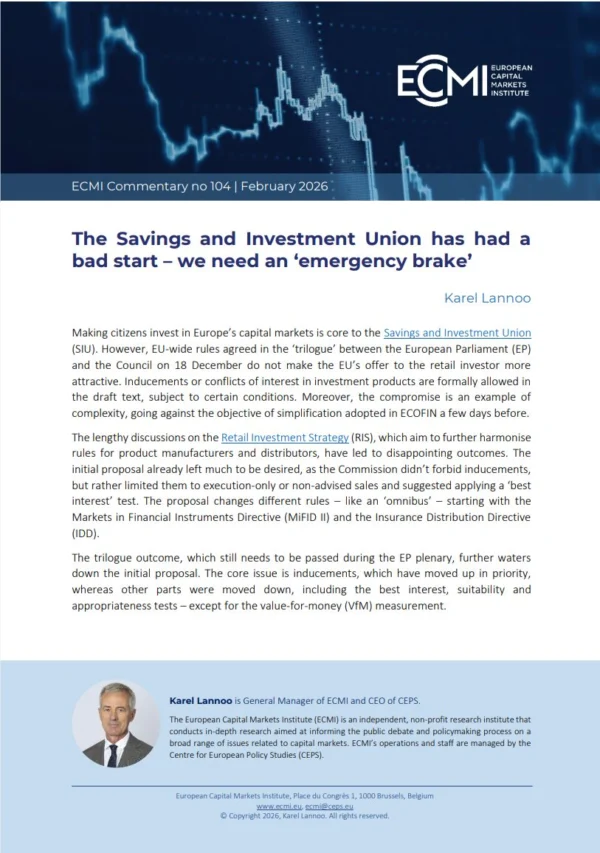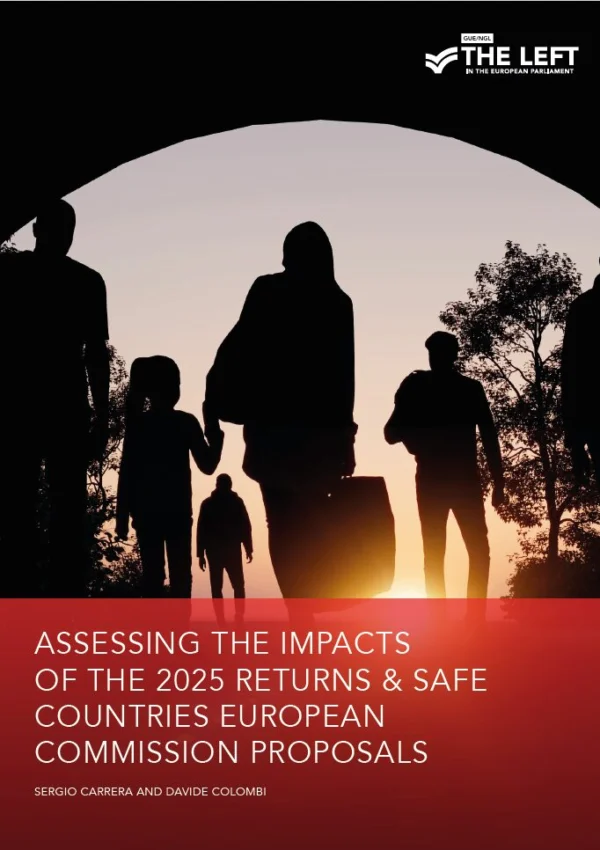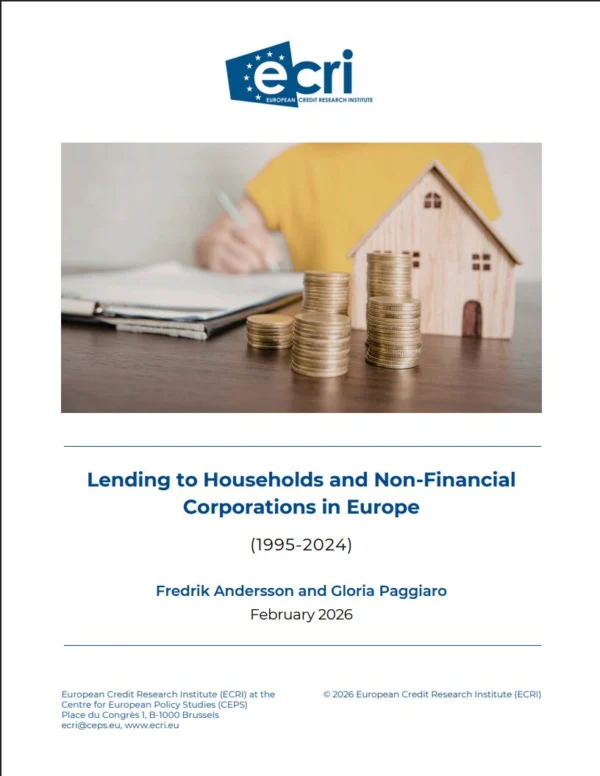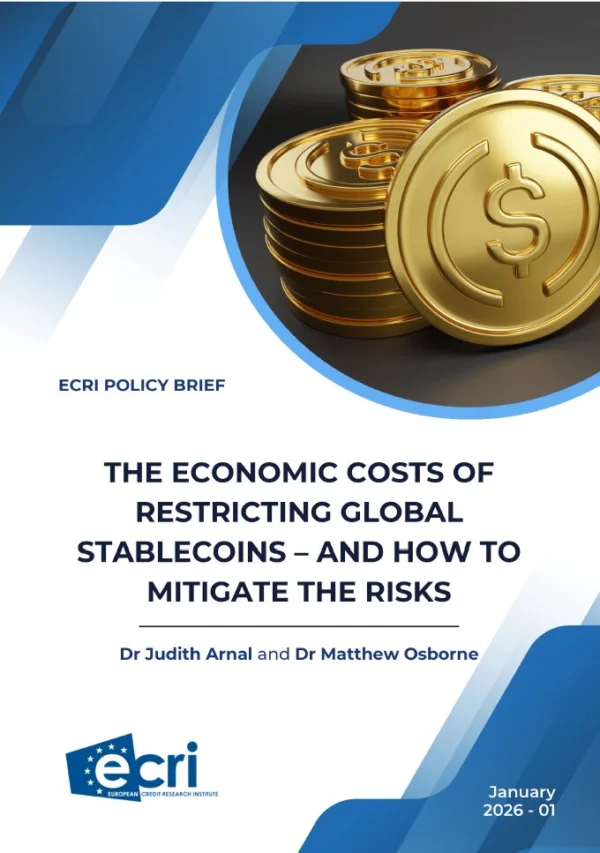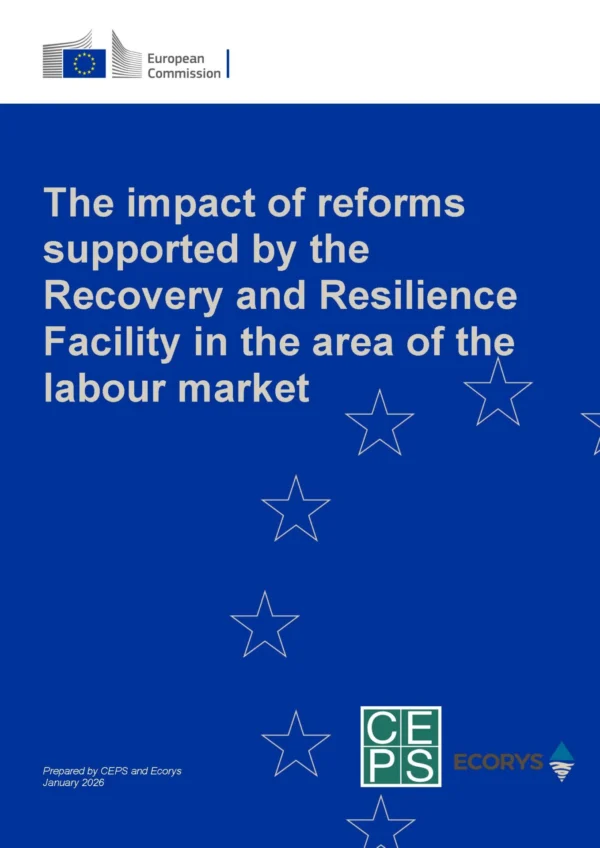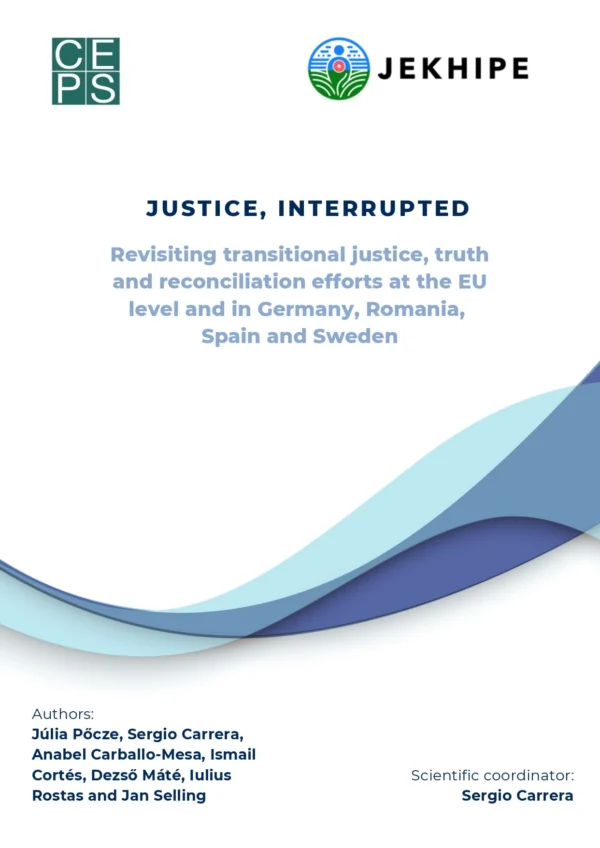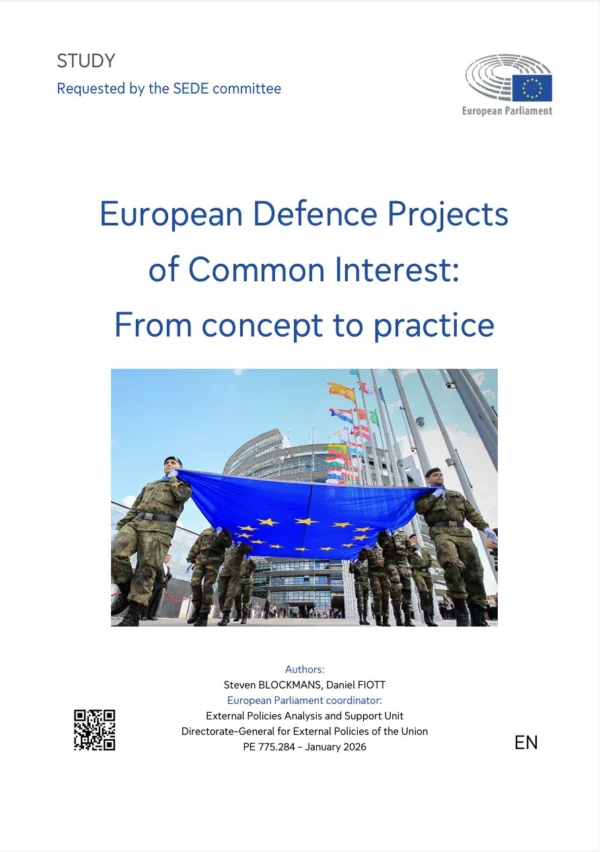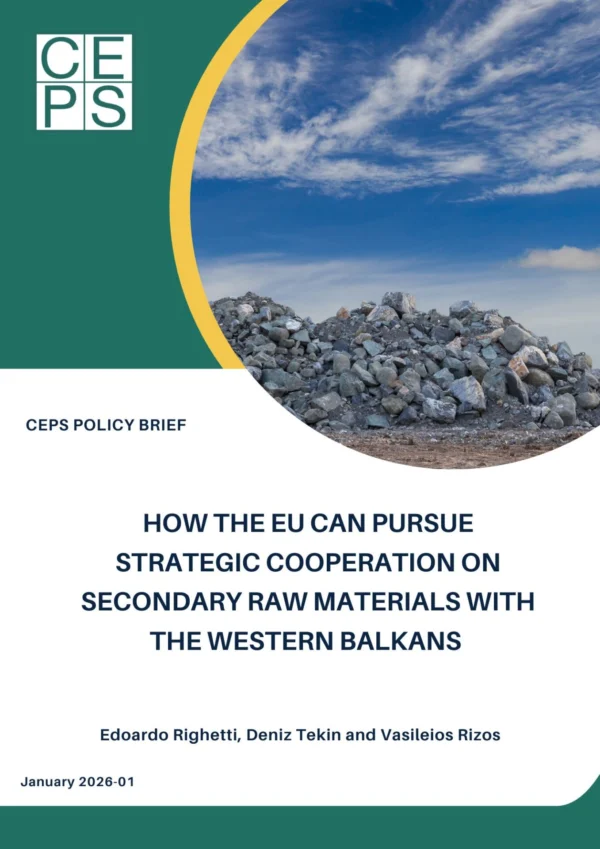Author: Stefano Micossi
Series: CEPS Commentary
I am still trying to process the shock of the UK referendum, which has dealt a historic blow to the European Union and has alerted us to the danger of the wave of anti-establishment and anti-elite sentiments shaking up developed nations, and bringing about disastrous decisions that cannot be easily reversed. These movements are present in many European countries; we cannot underestimate the dangers of tumbling down the slippery slope of nationalism, which could put the very survival of the Union into question. A response from the EU, or from a smaller circle of its founding or main members, is necessary – as long as we can identify meaningful goals.
We need to decide, first of all, what position to take vis-à-vis the United Kingdom. In my opinion, the problem is very complicated for them and far less so for the European Union. The UK needs to decide nothing less than that it wants to retain access to the European Internal Market. Perhaps the supporters of the Leave campaign do not fully understand that this is whole package, and that portions of it cannot be negotiated à la carte. The four freedoms of circulation – goods, services, capital and people – form the cornerstone of the Treaty on the Functioning of the European Union (TFEU), and they cannot be separated one from the other. In particular, it is not possible to have the first three without the fourth. On this, there will not be and cannot be any negotiation between the Union and the United Kingdom (assuming it remains united after the referendum’s unfortunate results).
Closing the UK’s borders to immigrant workers from other EU countries was the war cry of the pro-Brexit campaign. Pulling back from this demand, for the British, will not be easy. However, it may also turn out to be inevitable because the economic costs of losing access to the Internal Market would be devastating, first of all for the City of London, which would lose its role as the port of entry for the world’s capital into the European Union. Here lies the paradox: the United Kingdom will very likely continue to follow European regulations, including decisions by the Court of Justice of the European Union (CJEU), but it will no longer have a say in their making. As far as reclaiming their destinies go – this is quite an ironic result!
Choosing a negotiating strategy will be more complicated. The United Kingdom will likely delay invocation of Art. 50 in order to find a way to merge negotiations on the process of withdrawal with a redefinition of the country’s relationship with the Union. The EU does not have any reason to merge the two issues. Art. 50 only requires (emphasis added):
In the light of the guidelines provided by the European Council, the Union shall negotiate and conclude an agreement with that State, setting out the arrangements for its withdrawal, taking account of the framework for its future relationship with the Union.
Since it is not legally necessary, connecting the two issues would not be a sound negotiating tactic for the EU, as it only benefits the UK. Nor does the EU have anything to gain by allowing negotiations on its future relationship with the United Kingdom to start prior to receiving official notification of Britain’s intent to withdraw and, more importantly, before understanding the mandate with which the British Parliament is asking its government to begin withdrawal procedures.
Now, some brief thoughts on relaunching the Union. What I would avoid is envisioning an ambitious reform of the Treaties, which is not in the cards at this time. Instead, I would build upon what is already being done on various fronts – the economy, immigration and security – as well as re-establishing, where necessary, the authority of European institutions over member states which refuse to implement common decisions, for example regarding immigration.
This means, first of all, reopening negotiations on Banking Union and completing it with the European Deposit Insurance Scheme (EDIS) and a common backstop for the Single Resolution Fund (SRF). Negotiations are gridlocked because of the inability to find common ground between Germany’s demands – to reduce risky assets on the balance sheets of banks in the ‘periphery’ (Italy, above all) – and calls for greater sharing of risk from peripheral member states in the south. Since risk-sharing inevitably implies elements of fiscal union, it brings with it the prospect of creating an entity akin to a ‘European Minister of Finance’, endowed with discretionary powers to intervene and enforce the economic policy guidelines decided by the European Council. This entity should be accountable not only to the Council but also to the European Parliament, finding in them a source of democratic legitimacy.
On immigration, we need to restore the integrity of the Schengen Area and the credibility of joint decisions on the management of migratory flows. We also need concrete implementation of the Italian proposal for a Migration Compact, which requires significant investment in the development of countries with which we must collaborate in order to stem the influx of migrants into Europe. On security, I would start with the proposal already prepared for the next European Council – the creation of a common border force to patrol the Union’s external frontiers.
The icing on the cake would be a decisive initiative to spur economic growth and increase employment, especially for the area’s youth, as the Heads of State of Germany, France and Italy advocated in their joint declaration following their meeting in Berlin on 27 June 2016.
In summary, instead of dreaming of unrealistic leaps forward, which will likely not happen, we need to think about tangible and achievable goals, even if they are not easy, which would show the world that the EU will not only survive, it will grow stronger. If matters are handled well and clearly explained to the public, we can start to reconnect with our disgruntled societies and show that they have a strong stake in the European construction.
Stefano Micossi is Director General of Assonime, Chairman of the LUISS School of European Political Economy (SEP – LUISS) and a member of the CEPS Board of Directors. This commentary will also appear as a LUISS Policy Brief, 30 June 2016.
CEPS Commentaries offer concise, policy-oriented insights into topical issues in European affairs. The views expressed are attributable only to the author in a personal capacity and not to any institution with which he is associated.



